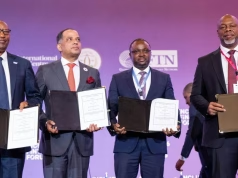Net foreign exchange inflows to Nigeria’s economy surged by 67.8 percent to $27.6 billion in the first half of 2024 (H1’24), compared to $16.44 billion in the corresponding period of 2023. This growth was driven by a 34.6 percent year-on-year (YoY) increase in net forex inflow through autonomous sources and a substantial 170 percent YoY increase in net forex inflow through the Central Bank of Nigeria (CBN).
Data from the CBN’s quarterly Economic Statistics for the review period revealed a 41.6 percent YoY increase in total forex inflow to the economy, reaching $47.73 billion in H1’24 from $33.7 billion in H1’23. Similarly, forex outflows from the economy rose by 16.3 percent YoY to $20.12 billion in H1’24 from N17.3 billion in H1’23.
An analysis of the data showed that inflows through autonomous sources rose by 47.6 percent YoY to $31.15 billion in H1’24, while outflows through autonomous sources increased sharply by 160.8 percent YoY to $5.4 billion. Consequently, net forex inflow through autonomous sources rose by 34.6 percent YoY to $25.7 billion in H1’24.
Inflows through the CBN rose by 31.7 percent YoY to $16.6 billion in H1’24, while outflows through the CBN declined by 15 percent to $14.7 billion. As a result, net forex inflow through the CBN surged by 170 percent YoY to $1.86 billion in H1’24 from -$2.65 billion in H1’23.
Meanwhile, inflows through International Money Transfer Operators (IMTOs) grew by 47 percent YoY to $2.33 billion in H1’24, driven by the CBN’s recent measures to enhance the activities of the foreign exchange (FX) markets and enable greater remittance flows through formal channels.

























